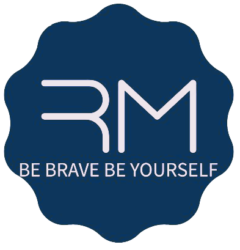
Introduction
Welcome to our beginner guide to coaching! In this article, we’ll explore the fundamental concepts, differences, models, and benefits of coaching to help you gain a deeper understanding of this powerful tool for personal and professional development.
Definition of Coaching
Coaching is a collaborative and goal-oriented process that involves a coach supporting and guiding individuals or groups to achieve their full potential. Unlike therapy or counseling, coaching focuses on the present and future, helping clients identify goals, overcome obstacles, and develop action plans to create positive change in their lives.
Differences Between Coaching, Mentoring, and Counseling
It’s essential to clarify the distinctions between coaching, mentoring, and counseling. While coaching focuses on facilitating growth and development through inquiry and empowerment, mentoring involves sharing expertise and experience to guide others in a specific field or industry. Counseling, on the other hand, addresses mental health issues and emotional challenges, often involving therapeutic interventions.
Coaching Applications
Coaching is a versatile tool with applications across various domains, including personal development, professional growth, leadership, and organizational effectiveness. Here are some common applications for coaching:
-
-
Personal Development: Coaching helps individuals gain clarity on their values, strengths, and goals, empowering them to lead more fulfilling and meaningful lives. Whether it’s improving self-confidence, managing stress, or enhancing communication skills, coaching provides personalized support to address specific challenges and achieve personal growth objectives.
-
Career Advancement: Many professionals seek coaching to advance their careers, navigate career transitions, or overcome obstacles in the workplace. Career coaching helps individuals identify their career aspirations, develop strategic career plans, and acquire the skills and confidence needed to succeed in their chosen fields.
-
Leadership Development: Coaching is instrumental in developing effective leadership skills and cultivating a positive leadership mindset. Leadership coaching focuses on enhancing self-awareness, emotional intelligence, communication skills, and decision-making abilities to inspire and motivate teams, drive organizational change, and achieve business objectives.
-
Entrepreneurship and Business Growth: Entrepreneurs and small business owners often turn to coaching to navigate the complexities of starting and growing a business. Business coaching provides strategic guidance, accountability, and support to entrepreneurs, helping them set clear business goals, develop actionable plans, and overcome challenges to achieve sustainable growth and success.
-
Health and Wellness: Coaching is increasingly utilized in the health and wellness industry to support individuals in achieving their health and fitness goals. Health coaches help clients adopt healthier lifestyle habits, manage chronic conditions, and improve overall well-being by providing education, motivation, and accountability.
-
Executive Coaching: Executive coaching is tailored for senior leaders and executives seeking to enhance their leadership effectiveness, drive organizational performance, and navigate complex business challenges. Executive coaches work closely with leaders to identify blind spots, leverage strengths, and develop strategies for personal and professional growth.
-
Team and Group Coaching: In addition to individual coaching, coaching can also be applied to teams and groups to improve collaboration, communication, and performance. Team coaching facilitates group dynamics, fosters a culture of trust and accountability, and helps teams align their goals and priorities to achieve collective success.
-
Life Transitions: Coaching is invaluable during life transitions such as divorce, relocation, retirement, or empty nesting. Transition coaching provides emotional support, guidance, and practical tools to navigate change, cope with uncertainty, and embrace new opportunities for growth and reinvention.
-
These are just a few examples of the diverse applications for coaching. Whether you’re looking to achieve personal goals, advance your career, or lead more effectively, coaching offers a tailored approach to support you on your journey of growth and success.
Coaching Models
Numerous coaching models and frameworks guide the coaching process. Some popular ones include the GROW model (Goal, Reality, Options, Will), the Wheel of Life, and the S.M.A.R.T. goal-setting approach. Each model offers a structured framework for coaches to facilitate meaningful conversations, set clear objectives, and track progress toward clients’ goals. You can read more about coaching models here.
Conclusion
In conclusion, coaching is a dynamic and versatile approach to personal and professional development, offering individuals the support, guidance, and accountability they need to unlock their full potential. By understanding the fundamental principles, differences, and models of coaching, you can harness its transformative power to achieve your goals and thrive in all areas of your life.


 Title
Title  Date
Date Category
Category